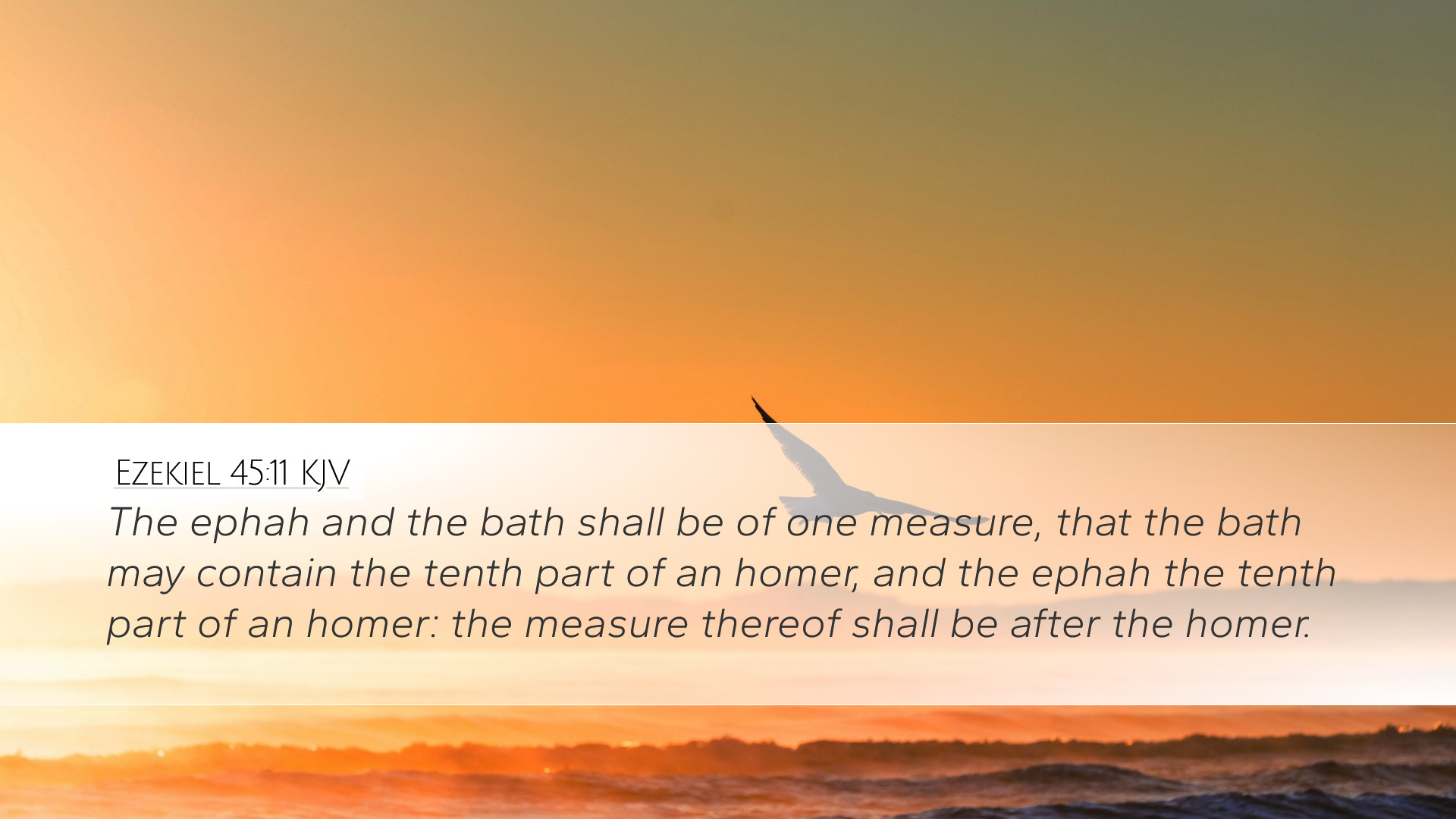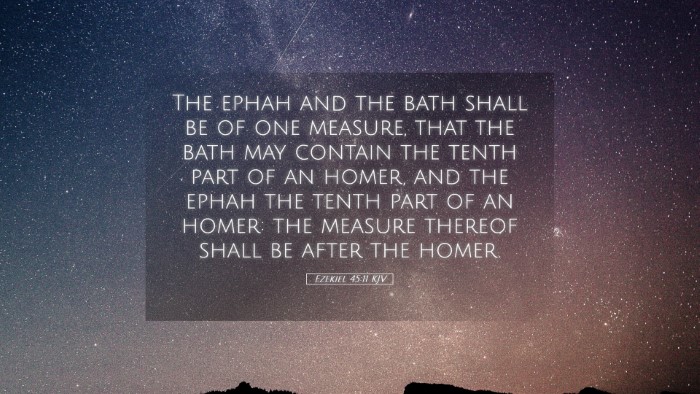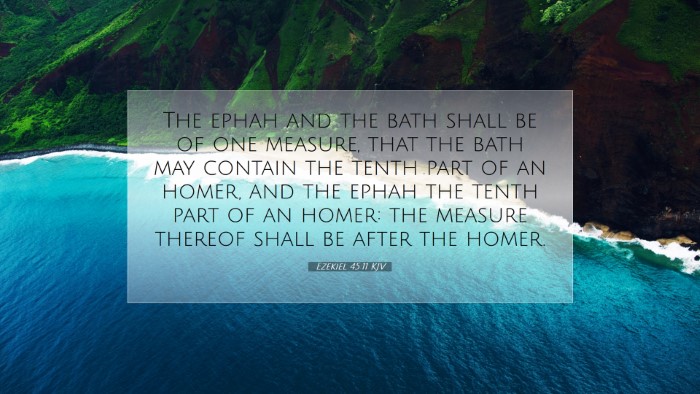Ezekiel 45:11 Commentary
Ezekiel 45:11 states, "The ephah and the bath shall be of one measure, that the bath may contain the tenth part of an homer, and the ephah the tenth part of an homer: the measure thereof shall be after the homer." This verse pertains to the measurements and standards of weights and measures within the forthcoming temple worship and practices as described in the prophetic vision of a restored Israel.
Contextual Background
The books of the Prophets are replete with insights into both the imminent and eschatological hopes of Israel. Ezekiel, one of the major prophets, provides a detailed vision of restoration that transcends mere physicality; it embodies spiritual renewal and communal righteousness. After detailing the destruction of Jerusalem, Ezekiel’s prophecies serve to assure the exiled Israelites of God’s intentions to restore them.
Interpretive Insights
The significance of clear standards in measurement cannot be understated in biblical practices:
- Divine Order: The precision in measurements underscores the importance of orderliness in divine worship. In the context of worship, God demands that His people adhere to a standard that reflects His holiness.
- Community Righteousness: Shared measurements signify equity among the people; the use of common standards would discourage fraud and exploitation, fostering a sense of community and mutual respect.
- Symbol of Abundance: The ephah, often associated with grain, points towards sustenance and prosperity, suggesting that God's provision is abundant when His people abide by His laws.
Commentary Insights
According to Matthew Henry, this verse symbolizes the entire system of religious and civil order that Yahweh intends for His people. The emphasis on precise measures reflects God's desire for justice and equity in dealings — principles foundational to the fabric of Israelite society.
Albert Barnes adds that the focus on the 'ephah' and 'bath' highlights the principle of unity in worship, indicating that all aspects of society should reflect the glory of God. He notes the significance of maintaining uniform standards as a prerequisite for communal integrity and spiritual clarity.
Adam Clarke elaborates further on the functional aspect of weights and measures within the temple economy. He argues that the proper observance of these measures would not only fulfill divine regulation, but also enhance the people's understanding of sanctity in everyday transactions. In observing such laws, the Israelites would symbolize their covenant loyalty and their allegiance to God’s will.
The Role of Measurements in Worship
Measurements in biblical texts often serve a dual purpose: they not only facilitate the physical act of worship but also symbolize deeper theological truths.
- Reflecting God’s Nature: Just as God is orderly and meticulous, so too should His people be in their worship. The call for precise measures denotes God's desire for His people to reflect His character in their communal and personal lives.
- Encouraging Accountability: By adhering to a divine standard, the community is kept accountable to one another and to God, thereby safeguarding against corruption and moral decay.
- Types of Christ: Within the typology of Scripture, the measurements might point towards Christ, who is the ultimate fulfillment of the law. He embodies perfection, order, and completeness that these measures seek to represent.
Theological Implications
This seemingly mundane verse has far-reaching theological implications: it serves as a reminder that God is concerned with every detail of His creation, including how His people conduct their lives.
The details of the measuring system provided in Ezekiel encourage believers to view their lives as temples dedicated to God. Worship should not be limited to the metaphysical; it encompasses physical expressions that reflect the order and beauty of divine design.
Conclusion
In conclusion, Ezekiel 45:11 encapsulates vital truths about divine order, community equity, and the faithfulness of God’s provisions. The insights gleaned from historical commentary align to underscore the importance of maintaining a standard that reflects God's holiness and justice. For pastors, students, and scholars, this passage invites a robust exploration of how standards of holiness impact lived faith and communal worship.


